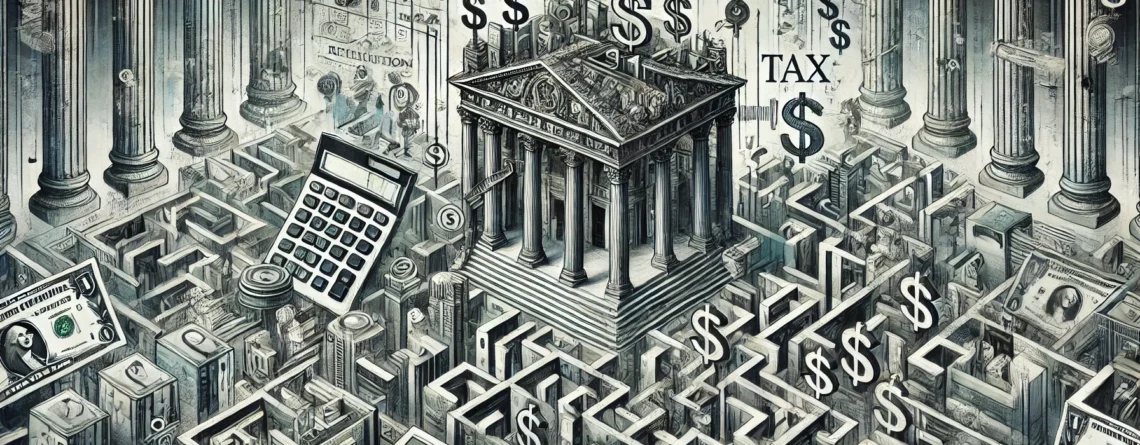Is Our Tax System Too Complex?
Recently, the American congress passed a law known as the “Inflation Reduction Act” that among other things provides an additional $80 billion USD of funding for the Internal Revenue Service (“IRS”) over 10 years. Supporters claim this extra funding will help the IRS collect more tax revenue by providing the agency with more auditing and compliance resources. We can expect similar legislation in Canada soon.
Such increases in funding raises more important questions about whether the endless “arms race” tax authorities are engaged in with their residents is worthwhile and whether our tax system could be both more fair and cheaper/easier to administer if it were simplified instead.
The Canada Revenue Agency (“CRA”) is our national equivalent to the IRS. Both agencies attempt to administer tax systems that are mind boggling complex. The Canadian Tax Act itself contains over a million words and any meaningful interpretation of it requires professional guidance. Even with the help of tax professionals, Canadian tax payers are frequently left making choices without clear answers. The most important tax decisions we make are seldom black & white because the tax system is so complex.
At first glance, increasing funding for tax agencies may seem to serve legitimate purposes. Unfortunately, such funding is partly self-defeating. With one hand we incentivize decisions that serve the public interest; with the other, we cancel them out by closing “loopholes.” On top of which, every further complication is an opportunity for tax avoidance, an added compliance burden on taxpayers and our tax authorities alike. Such resource allocation serves to transfer income from producers of socially valuable goods & services to accountants & lawyers eager for their share of the resulting deadweight loss.
The more complex we make our tax laws, the more “loopholes” we create and the more resources we need to put towards “compliance”. Society will be better off and much more productive with a less complicated tax system. This way, more resources can be directed towards productive activities instead of being sucked away by compliance costs.
But, if we provide more funding to tax agencies, won’t they be able to collect a multiple of that amount in lost taxes? Maybe. And, does this hold true over time? How can we be sure that tax payers won’t also adjust to new rules and avoid taxes in creative ways? Those who are avoiding taxes (either legitimately or otherwise) won’t simply stand still. Therefore, the tax compliance arms race will never end until we commit to tax code simplification instead.
By making the tax system more complicated, are we hurting compliance or helping it? Consider the abundance of tax advantaged savings accounts. The CRA provides tax relief for certain kinds of saving in the form of registered accounts. At the time of writing, there are six main registered account types: RSPs, RIFs, TFSAs, RDSPs, RESPs, and now FHSAs. Security in retirement and the ability to own a home for people who might otherwise lack it is a worthy purpose, and most countries offer tax-advantaged treatment for those on middle and low incomes. But, managing five separate registered accounts that all aim for similar purposes (to encourage saving) seems overly complicated. Plus, many of those benefiting from such tax savings accounts are the wealthiest among us. Would it not be more effective to create a universal registered savings account containing all the attributes of these separate accounts in-one?
For decades, whenever legislators have attempted to “reform” the tax code, they have just layered on new complications. Canada & the US now have tax systems that might have been designed to fail, incentivize avoidance, perpetuate a colossal tax gap, and drive taxpayers and tax officials alike out of their minds. The biggest problem with our tax agencies is not that they’ve been badly managed (though perhaps they might have been) or under-resourced (which it undoubtedly has been), but that hyperactive legislators have given them impossible tasks.
Rather than provide more funding for tax agencies. We’ll be better off by making our tax system easier to navigate. This will not only save valuable resources, but also make our tax systems more fair.

